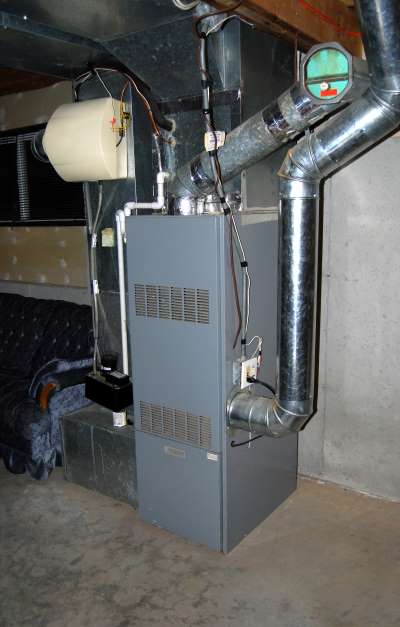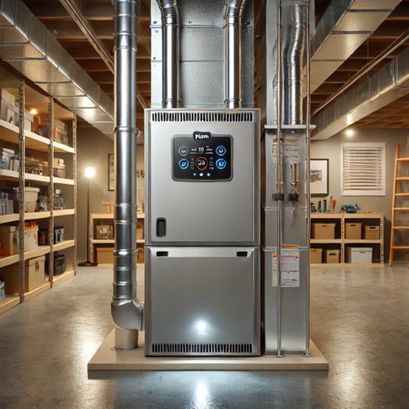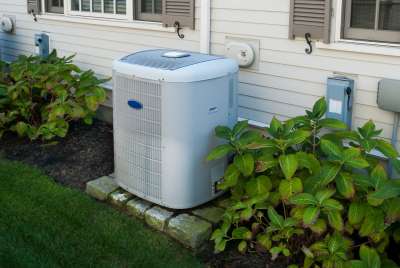Gas or Electric - Which is the right furnace for your home?
The Ultimate Guide to Choosing Between Gas and Electric Furnaces
Introduction
Deciding on the right heating system for your home is crucial for comfort, energy efficiency, and cost-effectiveness. Homeowners often find themselves choosing between a gas furnace and an electric furnace. To help you make an informed decision, we will explore the distinctive features and benefits of each type of furnace and provide guidance on determining which is best for your home.
Gas Furnaces: Features and Benefits
1. Superior Efficiency and Cost Savings
Gas furnaces are celebrated for their high efficiency. Modern gas furnaces can reach efficiency ratings of up to 98%, meaning they convert almost all the fuel into heat. Natural gas is typically cheaper than electricity, making gas furnaces a cost-effective option, especially in regions with cold winters.
2. Quick Heating
One significant advantage of gas furnaces is their ability to heat homes quickly. They produce heat by burning natural gas, creating a very hot flame and providing warmth faster than electric furnaces. This rapid heating capability is particularly valuable during harsh winter conditions.
3. Longevity and Reliability
Gas furnaces are generally more durable and have a longer lifespan compared to electric furnaces. With regular maintenance, a gas furnace can last between 15 and 20 years. Their sturdy construction and fewer electrical components contribute to their long-term reliability.
4. Lower Operating Costs
Given the lower cost of natural gas compared to electricity, gas furnaces often result in lower monthly utility bills. This makes them a financially attractive option for homeowners looking to reduce their heating expenses.
Electric Furnaces: Features and Benefits
1. Enhanced Safety and Simplicity
Electric furnaces are considered safer than gas furnaces because they do not involve combustion, eliminating risks such as carbon monoxide leaks. Additionally, electric furnaces are easier to install and maintain, as they do not require a gas line or venting system.
2. Environmentally Friendly
Electric furnaces produce no emissions during operation, making them a greener choice. If your electricity is sourced from renewable energy, such as wind or solar power, the environmental benefits are even more significant. This makes electric furnaces a compelling option for eco-conscious homeowners.
3. Consistent and Even Heating
Electric furnaces provide steady and uniform heating throughout the home. They are less susceptible to performance issues in extreme cold weather compared to gas furnaces, which can suffer from fuel line freezing or pressure drops.
4. Lower Initial Costs
The initial purchase price of an electric furnace is typically lower than that of a gas furnace. Installation is also more straightforward and less costly because it doesn't require setting up gas lines or venting systems. This makes electric furnaces an accessible choice for many homeowners.
Deciding Which Furnace is Right for You
1. Consider Your Climate
The climate in your region is a crucial factor in deciding the best furnace for your home. Gas furnaces are ideal for colder climates where quick and efficient heating is necessary. Electric furnaces, while effective, may struggle to meet the demands of extremely cold weather, potentially leading to higher energy costs in such conditions.
2. Compare Energy Costs
Evaluate the cost of natural gas versus electricity in your area. If natural gas is significantly less expensive, a gas furnace may be more economical. Conversely, if electricity is more affordable or if you have access to renewable energy sources, an electric furnace might be the better option.
3. Assess Installation and Maintenance Requirements
Consider the installation and maintenance needs of each type of furnace. Gas furnaces require a connection to a natural gas line and a venting system, which can increase installation complexity and cost. Electric furnaces, on the other hand, have simpler installation processes and lower maintenance requirements.
4. Evaluate Environmental Impact
If reducing your carbon footprint is a priority, an electric furnace is the greener choice, especially if paired with renewable energy sources. Gas furnaces, though efficient, still produce emissions and rely on fossil fuels.
5. Consider Safety Factors
Safety is a vital consideration when choosing a furnace. Electric furnaces eliminate the risk of carbon monoxide poisoning and reduce fire hazards. However, modern gas furnaces are equipped with safety features to mitigate these risks, so both options can be safe when properly maintained.
6. Think About Longevity and Durability
Consider the expected lifespan of each type of furnace. Gas furnaces generally have a longer lifespan, but electric furnaces can also provide reliable heating for many years with proper care. Evaluate the long-term investment and potential replacement costs.
Conclusion
Choosing between a gas furnace and an electric furnace involves weighing various factors, including climate, energy costs, installation and maintenance needs, environmental impact, safety, and longevity. Both types of furnaces offer unique advantages and can provide efficient, reliable heating for your home.
By understanding the features and benefits of gas and electric furnaces, you can make a well-informed decision that best suits your needs and priorities. Whether you prioritize cost savings, environmental sustainability, or safety, there is a furnace option that will ensure your home remains comfortable and warm. Fill in our
contact form, or give us a call so we can be your heat pump solution.
You might also like



